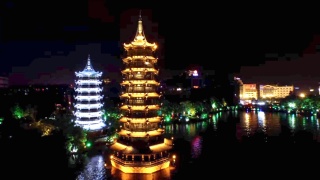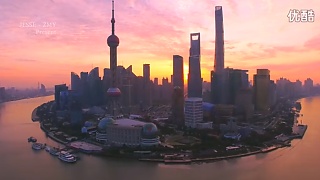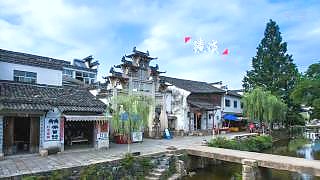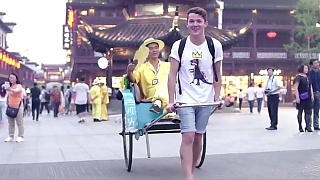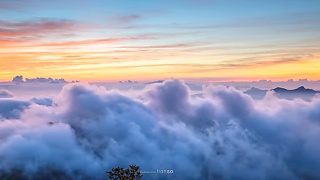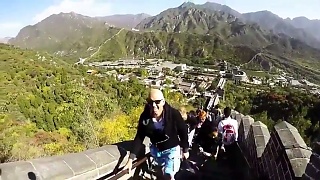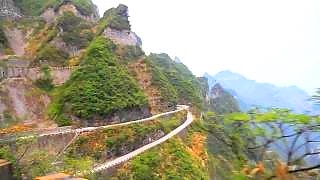
|
Between DaLi and LiJiang.
With Flora and Note ...
With Little Chinese Everywhere ...
ShaXi Ancient Town, located in Yunnan province, is a well-preserved trading town that dates back to the time of the Tea Horse Road, an ancient network of trade routes. Known for its rich cultural heritage, charming architecture, and serene landscapes, Shaxi offers a glimpse into China's historical past and traditional lifestyles. This guide provides an in-depth look at the best attractions, activities, and tips for visiting Shaxi Ancient Town.
Top Attractions
Sidu Square
Sidu Square, also known as Sideng Square, is the heart of Shaxi Ancient Town. This historic market square has been the center of trade and social life for centuries. Surrounded by traditional Bai-style architecture, the square is a great place to start your exploration of Shaxi.
Ancient Theatre
Located on Sidu Square, the ancient theatre is a remarkable example of traditional Chinese architecture. Built during the Qing Dynasty, it served as a cultural hub for performances and public gatherings. The theatre's intricate wooden carvings and well-preserved stage are a highlight for visitors.
Ouyang Courtyard
The Ouyang Courtyard is a traditional Bai residential complex that showcases the local architectural style. This historic home provides insights into the daily life and customs of the Bai people, one of the ethnic minorities in the region.
Yujin Bridge
The Yujin Bridge is an ancient stone bridge that spans the Heihui River. It is a picturesque spot for photography and a reminder of Shaxi's importance as a trading post on the Tea Horse Road. The bridge offers beautiful views of the surrounding countryside.
Tea Horse Road
The Tea Horse Road was an ancient trade route that connected Yunnan with Tibet, facilitating the exchange of tea, horses, and other goods. Walking along the remnants of this historic road in Shaxi allows visitors to step back in time and imagine the bustling trade that once took place here.
Culture and Heritage
Shaxi Ancient Town is a cultural melting pot, primarily influenced by the Bai and Yi ethnic minorities. The town's well-preserved buildings, traditional festivals, and local crafts reflect the rich heritage of these communities.
Bai Ethnic Culture
The Bai people are known for their distinctive white clothing, vibrant festivals, and intricate wood carvings. Visitors to Shaxi can experience Bai culture through local performances, traditional Bai cuisine, and interactions with the friendly locals.
Yi Ethnic Culture
The Yi people, another significant ethnic group in Shaxi, are recognized for their colorful costumes, lively dances, and unique customs. Festivals such as the Torch Festival provide a deeper understanding of Yi traditions and beliefs.
Touring Shaxi
Planning Your Visit
A visit to Shaxi can be comfortably done in two to three days, allowing time to explore the town and its surroundings. Here is a suggested itinerary:
Day 1: Arrival and Initial Exploration
Morning: Arrive in Shaxi and check into a local guesthouse or hotel. Take a leisurely stroll around Sidu Square to get acquainted with the town.
Afternoon: Visit the ancient theatre and explore the nearby Ouyang Courtyard to learn about traditional Bai architecture and culture.
Evening: Enjoy a traditional Bai meal at one of the local restaurants and relax in the serene atmosphere of the town.
Day 2: Exploring the Historic Sites
Morning: Walk along the Tea Horse Road and visit the Yujin Bridge for beautiful views of the countryside.
Afternoon: Explore the nearby Shibaoshan Grottoes, a collection of ancient Buddhist carvings and temples set in a scenic mountainous area.
Evening: Return to Shaxi for a peaceful evening and perhaps catch a local cultural performance if available.
Day 3: Cultural Immersion and Departure
Morning: Visit the Friday Market (if your visit coincides with it) to experience the vibrant local trade and sample fresh produce and traditional crafts.
Mid-Morning: Take a guided tour or workshop to learn about Bai and Yi handicrafts, such as tie-dye, pottery, or wood carving.
Afternoon: Depart Shaxi and continue your journey in Yunnan Province.
Activities and Experiences
Hiking and Nature Walks
The scenic landscapes around Shaxi offer excellent opportunities for hiking and nature walks. Trails lead to nearby villages, temples, and natural attractions, providing a tranquil escape from the bustling towns and cities.
Photography
With its well-preserved architecture, vibrant markets, and stunning natural surroundings, Shaxi is a photographer's paradise. Capture the essence of this ancient town and its picturesque landscapes.
Local Cuisine
Shaxi's cuisine reflects the flavors of Yunnan Province, with influences from the Bai and Yi ethnic groups. Try local specialties such as cured ham, rice noodles, and various mushroom dishes. The Friday Market is a great place to sample fresh and authentic local food.
Travel Tips
Best Time to Visit
The best times to visit Shaxi are spring (March to May) and autumn (September to November) when the weather is pleasant and the scenery is vibrant. Summer can be warm and rainy, while winter is cooler but generally dry.
Getting There
Shaxi is accessible by bus from major cities in Yunnan, such as Dali and Lijiang. The nearest airport is in Lijiang, from where you can take a bus or hire a taxi to Shaxi. The journey from Lijiang to Shaxi takes about three hours by road.
Accommodation
Shaxi offers a range of accommodation options, including guesthouses, boutique hotels, and traditional inns. Staying in a local guesthouse provides an authentic experience and a chance to interact with the local community.
Guides and Tours
Consider hiring a local guide to enhance your experience in Shaxi. Guides can provide historical context, cultural insights, and help navigate the town's attractions. Many guesthouses and hotels can arrange guided tours and cultural workshops.
Introduction
Shaxi Ancient Town is a picturesque and well-preserved ancient village located in the southwest of Jianchuan County, Yunnan Province, China. Known for its rich history, unique Bai culture, and scenic beauty, Shaxi is a hidden gem along the ancient Tea Horse Road. This guide will help you explore the town's main attractions, culture, and practical travel tips.
Getting There
By Air: The nearest airport is in Dali (Dali Airport). From there, you can take a bus or hire a car to Shaxi, which is about 120 km away.
By Train: The nearest major train station is also in Dali. From Dali, you can take a bus to Jianchuan and then a local bus or taxi to Shaxi.
By Bus: Direct buses run from Dali, Lijiang, and Kunming to Jianchuan. From Jianchuan, you can take a local bus or taxi to Shaxi.
Best Time to Visit
The best time to visit Shaxi is during spring (March to May) and autumn (September to November) when the weather is mild and pleasant.
Main Attractions
Sideng Square: The heart of Shaxi, Sideng Square, is a UNESCO World Heritage site. It's a perfect spot to start your exploration with traditional Bai architecture, a well-preserved market square, and the iconic Sideng Theatre.
Xingjiao Temple: Located near Sideng Square, this ancient Buddhist temple complex features beautiful frescoes, ancient trees, and serene courtyards. It offers a glimpse into the religious life of the town.
Ancient Tea Horse Road: Explore parts of this historic trade route, which once connected Yunnan with Tibet. Walk the cobblestone paths and imagine the ancient caravans that once traveled here.
Yujin Bridge: A picturesque old stone bridge that spans the Heihui River. It's a great spot for photography and to enjoy the tranquil river scenery.
Friday Market: If you're in Shaxi on a Friday, don't miss the vibrant local market where villagers from surrounding areas come to sell their produce, handicrafts, and livestock.
Shibaoshan Mountain: Located about 10 km from Shaxi, this scenic mountain is home to the Shizhongshan Grottoes, ancient Buddhist carvings, and stunning views. It's a great spot for hiking and exploring.
Cultural Highlights
Bai Ethnic Culture: Shaxi is predominantly inhabited by the Bai ethnic group. Explore their unique customs, traditional Bai houses, and taste their local cuisine.
Traditional Festivals: Experience local festivals such as the Torch Festival (July) and the Bai Flower Festival (April), which showcase traditional music, dance, and rituals.
Handicrafts: Shaxi is known for its traditional Bai textiles and wood carvings. Visit local workshops and galleries to see artisans at work and buy unique souvenirs.
Accommodation
Shaxi offers a range of accommodation options from budget hostels to boutique guesthouses. Some recommended places to stay include:
Laomadian Lodge: A charming guesthouse with traditional Bai architecture.
Shaxi Horse Pen 46 Youth Hostel: A budget-friendly option popular with backpackers.
A Tiny Place: A boutique hotel offering comfortable rooms and excellent service.
Dining
Local Cuisine: Try local dishes such as Shaxi baba (a type of flatbread), Bai-style hotpot, and various wild mushroom dishes.
Restaurants: Recommended eateries include Shaxi Awu's Kitchen, Hiker's Inn & Café, and Tea & Horse Caravan Restaurant.
Practical Tips
Language: Mandarin is widely spoken, but learning a few basic phrases can be helpful. English is not commonly spoken, so a translation app can be useful.
Currency: The local currency is the Chinese Yuan (CNY). Ensure you have enough cash as ATMs may be limited.
Health and Safety: Shaxi is generally safe, but it's always good to stay aware of your surroundings. Drink bottled water and try to avoid street food if you have a sensitive stomach.
Local Customs: Respect local traditions and dress modestly, especially when visiting religious sites.
Conclusion
Shaxi Ancient Town is a captivating destination that offers a unique blend of history, culture, and natural beauty. Whether you're trekking the ancient Tea Horse Road, exploring Bai architecture, or simply soaking in the tranquil atmosphere, Shaxi promises an unforgettable experience.
|

 NanJing 南京 time-lapse and aerial drone film
NanJing 南京 time-lapse and aerial drone film


